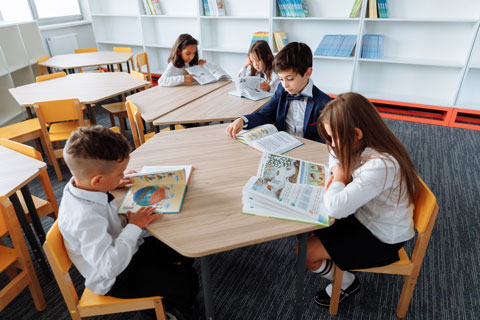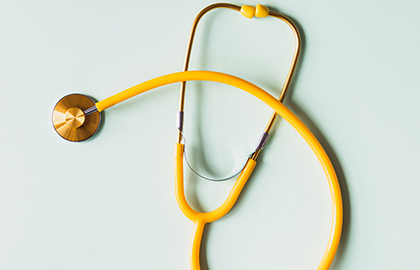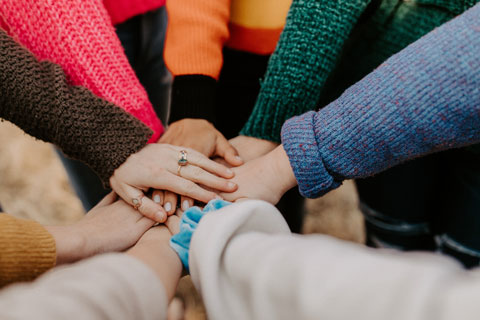Resources for Young Parents
These resources are accessible to anyone living in the U.S. There are also many valuable resources in your local community and online. Many are even free! Explore the links below to find resources available across the country. You can also dial 211, a national phone number that people can call to connect with a local resource specialist who can help residents find local resources.
Birth Control
Planned Parenthood: This organization delivers reproductive health care such as birth control and STI testing and sex education.
Title X: These clinics are federally funded to provide low-to-no cost reproductive health care, including STI testing and birth control.
Bedsider.org: Bedsider is an online birth control support network for women 18-29 operated by Power to Decide, the campaign to prevent unplanned pregnancy.
Childcare
Childcare.gov: This website can help people locate childcare and financial assistance programs.
Head Start (Early Childhood Learning & Knowledge Center): This is a full day preschool program for low-income children from birth up to five years of age that helps prepare children for school. Find a program near you!
What should I pay my sitter? from Care.com: This website helps to determine the going rate for a babysitter in your area.
Drugs and Alcohol
SAMHSA: This agency can help people locate treatment for mental health and addiction.
National Helpline: This is a free, confidential, 24/7, 365-day-a-year treatment referral and information service (in English and Spanish) for individuals and families facing mental and/or substance use disorders.
- Visit the SAMHSA National Helpline website or call 1-800-662-HELP (4357)

Eating Disorders
National Eating Disorders Helpline: This is a helpline for support, resources, and treatment options for yourself or a loved one who is struggling with an eating disorder. Visit their website, Call or Text 1-800-931-2237
Eating Disorders Anonymous: This group offers support groups in person, on the phone, or online for free for anyone with an eating disorder.

Education
GED® (General Educational Development) and HiSET® (High School Equivalency Test): These tests give out-of-school youth and adults an opportunity to demonstrate their knowledge and earn a high school equivalency (HSE) credential. This can improve eligibility for job opportunities, college enrollment, and more.
BestColleges.com has compiled a list of Colleges with Resources for Young Parents.
FASFA (Free Application for Federal Student Aid): An application to receive financial aid (grants, work-study and low-interest loans) from the federal government to help low-income students pay for college.
Scholarships.com: This website and mobile app matches students with national, state and local scholarships and grants to help pay for school and allows you to filter by type (e.g., single mother, father, parent).
Food Assistance
FoodFinder: This mobile and web app helps families find local free food assistance programs/food banks.
SNAP (Supplemental Nutrition Assistance Program): A federal program created to provide food assistance to families in need.
WIC (Women, Infants, and Children): A supplemental nutrition program that provides foods, nutrition education, breastfeeding promotion and support, referrals and access to health and social services to low-income pregnant, breastfeeding, and postpartum women and to infants and children up to 5 years old.
Summer Food Service Program/Summer Meals Program: This program provides children in low-income areas with nutritious meals and snacks when schools out.
Free Activities for Families
Community Centers: Public centers that can connect people to local resources, and offer services such as support groups, classes (e.g., cooking, computer basics) and activities for families and children.
Find a center near you by searching for “local community centers” on google.
Every Kid Sports : This organization sponsors youth sports grants to cover registration fees.
Museums for All : This website is a guide to free or reduced museum admissions.
Libraries: Connect people to information through books and online databases, offer free internet and computer access, children’s activities and much more.

Health and Insurance

HealthCare.gov: This website can help direct people to their states website to learn about health insurance plans, talk to insurances experts and enroll. Learn more
Community Health Centers: Clinics and hospitals that provide affordable healthcare services such as dental and medical and can connect residents with other local resources. Learn more
Health Districts and Departments:
Provide health services and programs such as vaccinations and nutrition classes, specific health-related trainings (e.g. CPR and Food Safety) and can connect residents to other local resources. Learn more
Office on Women’s Health: Office within the U.S. Department of Health and Human Services that provides works on improving women’s health through policies and education. Learn more here:
GoodRx:
Compare prices and get coupons for prescription medications. Learn more
Housing
CoAbode: This is a national website for single mothers to co-live with other mothers.
U.S. Department of Housing and Urban Development (HUD):
Find resources in your geographic area. Learn more
HUD Rental Assistance:
Affordable housing for low-income individuals and families. Learn more
Family Watchdog:
This free resource helps to identify those in your neighborhood who are on a national sex offender registry. Learn more
Low Income Home Energy Assistance Program (LIHEAP):
A program that helps low-income households with their home energy bills. Learn more
TANF (Temporary Assistance for Needy Families):
A federal program (also known as Welfare) that provides temporary financial assistance for families to fulfill basic needs such as housing, utilities, food, childcare and job training. Learn more
Intimate Partner Violence
National Domestic Violence Hotline: provides essential tools and support to help survivors of domestic violence so they can live their lives free of abuse. Call 1-800-799-SAFE (7233) or text START to 88788
National Sexual Assault Hotline: operated by RAINN serves people affected by sexual violence. 1-800-656-HOPE (4673)

Jobs and Careers
CareerOneStop: This website can help people find local job centers who often provide job training (e.g., help with resumes and interview prep) and can help you find a job.
USA.gov: This website provides information on various topics such as job and unemployment, taxes, immigration and voting.
Legal
Legal Services Corporation (LSC): This non-profit organization provides eligible low-income people with financial support for civil legal aid. Visit their website to find legal aid near you.
LawHelp.org: This website can help people find state specific legal information about various topics and free legal forms.
Office of Child Support Enforcement: This is a program can help locate parents, establish paternity, and works with families to set child support orders.
Mental Health
National Suicide Prevention Hotline: This hotline provides 24/7 free and confidential support for people in distress, as well as prevention and crisis resources.
Lifeline number: 9-8-8
The Trevor Project: This free counseling and help resource is for LGBTQ young people to prevent suicide.
Substance Abuse and Mental Health Services Administration (SAMHSA): This is agency can help people locate treatment for mental health and addiction.
National Alliance of Mental Health (NAMI): This organization provides people with mental health education and support (such as support groups).
MentalHealth.gov: A online website that provides health information on mental health issues.

Safe Sleep
Resources and information for parents to learn how to help their baby sleep safely.
Centers for Disease Control
Helping Babies Sleep Safely
Safe Sleep for Babies
National Institutes of Health
Safe to Sleep
Cribs for Kids supports families in need around the nation to obtain a separate safe sleeping space for their baby.
